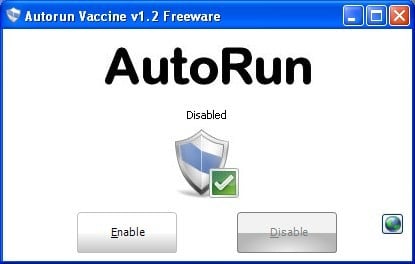

Setting the Y bit to 1 could easily be abused by a malicious application, by, e.g., creating an undeletable file that takes up the drive's entire free space.


Ubuntu leaves the X intact if it is set to 1, since it does no harm. I downloaded and installed Panda USB Vaccine and "vaccinated" my flash drive, dumped the flash drive's partition with dd for windows using the commands dd -listĭd if=\\.\VolumeĤ While a blatant deviation from the specification, it seems to be thought-out one. If you know how it works, you can reverse the effects and the "vaccine" becomes useless. Panda doesn't seem to reveal the exact mechanism of its "vaccine", which is understandable, since it's basically security through obscurity.


 0 kommentar(er)
0 kommentar(er)
